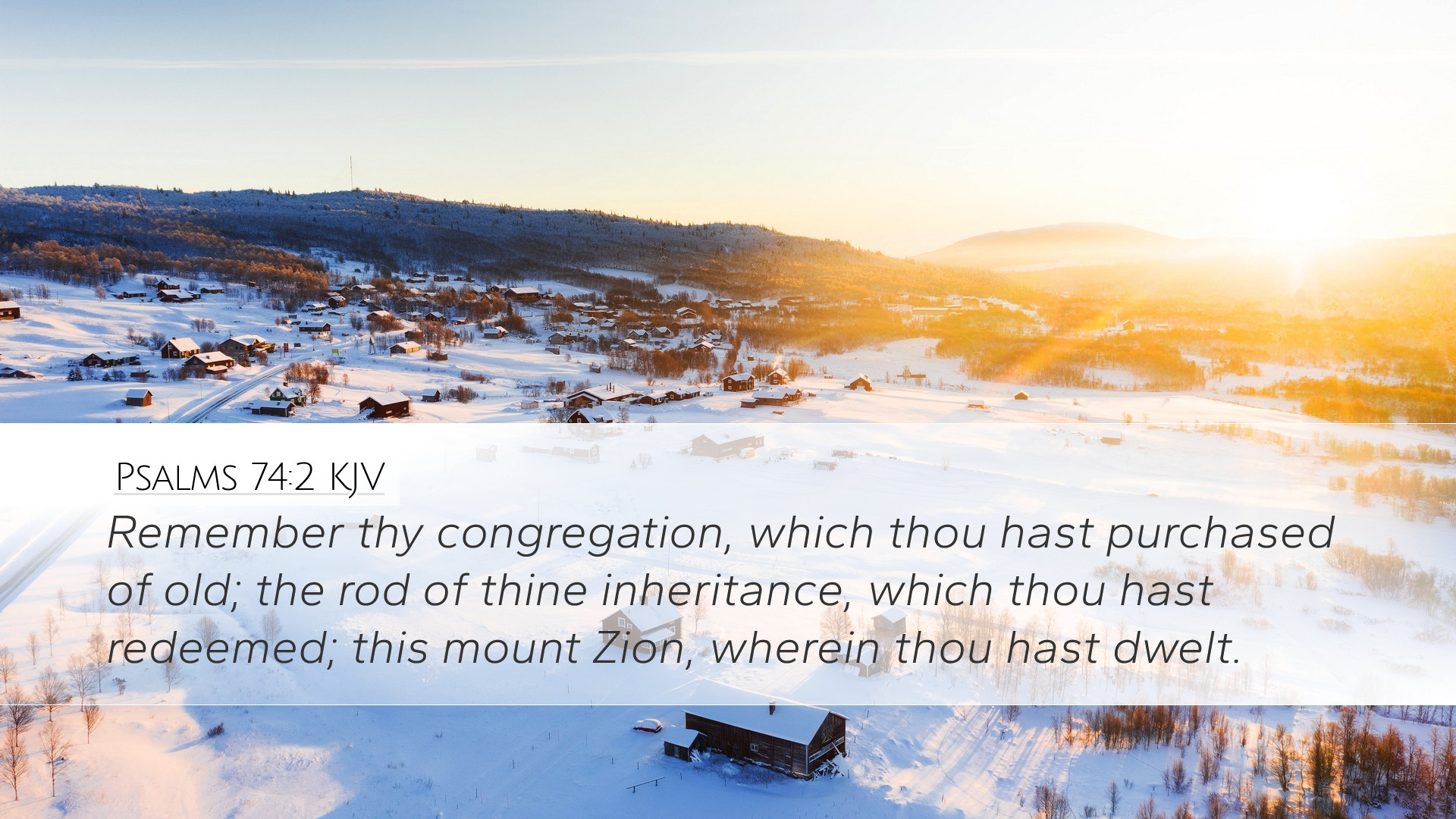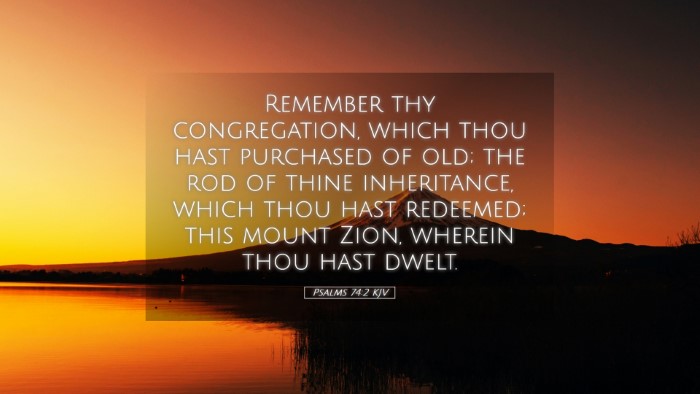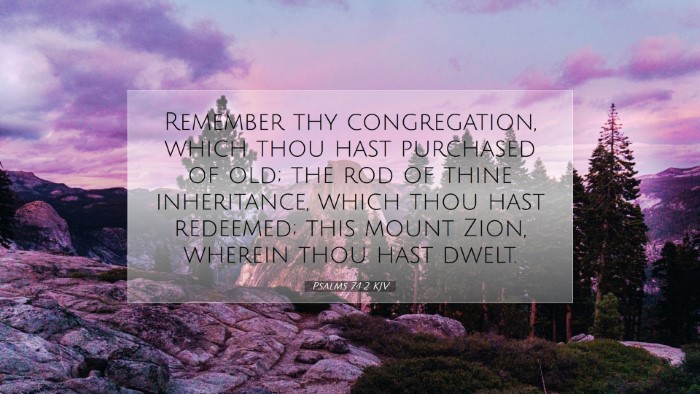Commentary on Psalms 74:2
Psalms 74:2 (KJV): "Remember thy congregation, which thou hast purchased of old; the rod of thine inheritance, which thou hast redeemed; this mount Zion, wherein thou hast dwelt."
Introduction
This verse is set within a context of lamentation and supplication, highlighting the deep sense of loss and confusion regarding the status of God's chosen people. The psalmist calls upon God to remember His people, emphasizing the connection between divine redemption and the physical location of Zion.
Theological Insights
- The Importance of God's Remembrance: The plea for God to remember His congregation signifies a call to divine intervention. This is not merely about God's memory; it reflects a longing for His active presence and acknowledgment of their plight.
- Understanding the Congregation: The term "congregation" refers not only to the body of believers but also to the community that God has set apart. Matthew Henry notes that this congregation is "purchased and redeemed," highlighting God's initiative in their salvation.
- The Significance of Purchase and Redemption: Albert Barnes observes that the imagery of purchase and redemption underscores the idea that God's people belong to Him by right of ownership. This suggests a deep, intimate relationship between God and His people.
- Connection to Zion: Zion represents the dwelling place of God among His people, the seat of His presence and glory. Adam Clarke emphasizes that this location is symbolic of God's promises and His covenant with Israel.
Historical Context
The psalm is generally believed to have been written during a period of crisis, likely the Babylonian Exile, when the temple was destroyed and the people felt abandoned. The historical backdrop contributes to the urgency of the psalmist's plea, as the integrity of Zion was intimately tied to the identity and hope of Israel.
The Destruction of the Temple
The destruction of the temple represented more than a physical loss; it symbolized a perceived abandonment by God. In this state of lament, the psalmist's reference to Zion is a profound expression of longing for restoration.
The Identity of God's People
The people of Israel had a historical understanding of themselves as God's peculiar possession. The use of "purchased" in the verse reinforces their identity as a redeemed community, suggesting that God's covenant promises were still in effect, even in the midst of chaos.
Exegesis of Key Terms
- “Congregation”: This term denotes not merely an assembly but conveys the idea of a people set apart. It signifies the collective identity of believers.
- “Purchased”: Indicates that belonging to God is through His deliberate act of redemption. This term speaks to God's initiative and sovereignty in salvation.
- “Rod of Thine Inheritance”: Refers to both a symbol of authority and a designation of God's legacy with His people. It marks the people as heirs of God's promises.
- “Zion”: Beyond a geographical location, Zion represents the locus of God's presence, where heaven and earth intersect.
The Call for Divine Intervention
The psalmist's request for God to “remember” serves as an invocation for God to act on behalf of His people. They function as a legitimate plea, recognizing that human efforts are inadequate apart from divine grace.
The Role of Prayer
This verse highlights the importance of prayer in the life of believers. As illustrated by Clarke, the act of praying calls upon God to fulfill His promises, reaffirming trust in His faithfulness during trials.
Pastoral Applications
- Encouragement in Distress: Pastors can use this verse to encourage congregations during difficult times, reminding them that God has not forgotten His promises.
- Community Identity: This passage serves as a reminder of the distinct nature of the church as God's bought and beloved people, calling congregations to recognize their special status and purpose.
- The Hope of Restoration: The longing for Zion offers a picture of hope and restoration, encouraging believers to trust in God’s redemptive work both personally and corporately.
Conclusion
Psalms 74:2 encapsulates a profound cry for divine remembrance rooted in the historical context of God's redemptive acts. This text serves as an exhortation to maintain hope against despair, anchored in the memory of God's covenant, which holds the promise of restoration for His congregation. The insights derived from prominent commentaries enrich our understanding of this verse and open pathways for application within the life of the church today.
References from Commentaries
- Matthew Henry's Commentary
- Albert Barnes' Notes on the Bible
- Adam Clarke's Commentary on the Bible


